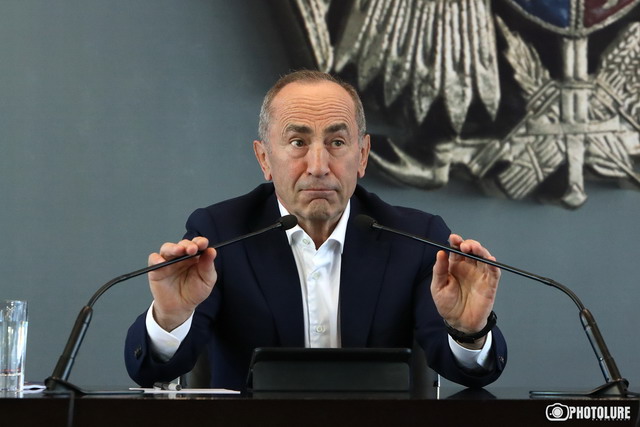People who see life in the “Pashinyan-Kocharyan” opposition and think that the whole universe revolves around these two people are making a fundamental mistake. Kocharyan’s train has already left, and to be honest, I am surprised that an experienced politician like him thinks that he can somehow return to power. Yesterday’s press conference of the second president showed that he does not have an adequate idea of reality. Kocharyan is not the person who can change the government. Naturally, Serzh Sargsyan is not such a figure either. The difference is that the third president understands this and the second does not.
Does this mean that Pashinyan is “forever” and will sit on the throne as long as Nazarbayev or Lukashenko did? Of course not. He will leave in a few years, I hope, peacefully. So, to lead the dispute over the future of Armenia into a confrontation between two people is the result of a limited, primitive way of thinking. And to think outside of individuals, one must understand a) what the main players in this region want, b) what the citizens of Armenia want.
The answers to both questions are difficult. The so-called “Dunning-Kruger effect” works here: the less knowledge people have, the more confidently they speak in an objectionable tone about the interests and goals of our four immediate neighbors and the three Minsk Group Co-Chairs in the South Caucasus. They can also clearly state what kind of state the “Armenian people” want to have.
To understand which direction our citizens choose, of course, it would be ideal to conduct a credible sociological survey. But such polls have never been believed in Armenia, and were finally discredited after the 2020 parliamentary elections. However, let us admit that the best poll was that election. Suppose 25% of Armenians preferred Pashinyan to stay, 10% chose the current parliamentary opposition, 5% other political forces, and half did not approach the polling booths at all. What does it mean in sociological terms? I think nothing special. One can argue about the accuracy of the numbers, but I think that is not the problem.
Read also
There are, in fact, two problems. The first is that it is very difficult to form a “class” sample of our society. In my youth, in the 1970s, there were “official” classes – workers, peasants, and intellectuals – as the “middle class.” There were also informal groups: the communist nomenclature (from the first secretary to the storekeeper), the “organ workers” (those who did business and then demanded bribes for not being persecuted) and the “mud” (semi-illegal businesses). The interests of the representatives of these strata were clear more or less, and if there was a desire to conduct a fair inquiry, there would be no problems with the sample. And now let’s try to understand what layers we have today. Just do not say supporters of the honest “present” and the thieving “former.” These are propaganda clichés.
But there is an even more difficult problem: sincerity. If the citizens of Armenia are asked whether they are sorry for the loss of 70% of Artsakh, the overwhelming majority will answer “yes,” “of course”, “we must bring back the lost lands.” How do you measure the sincerity of those answers?
Aram Abrahamyan























































